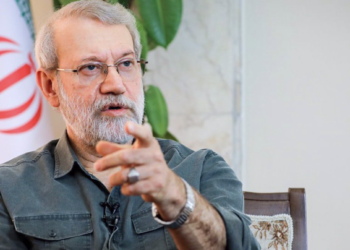TOKYO (Realist English). Japanese government officials have quietly told domestic companies they would be “on their own” in the event of a Chinese attack on Taiwan, with no guarantees of military evacuation or official support, according to multiple people familiar with the matter.
The warning — in place for several years but never formally acknowledged — has had a chilling effect on Japanese foreign direct investment in Taiwan, traditionally one of its top sources of capital. In 2023, Japanese FDI in Taiwan fell by 27% to $452 million, down sharply from $1.7 billion in 2022. In contrast, investment from U.S. and UK firms surged to record levels.
“It has discouraged investment. There is lots of new U.S. investment in Taiwan, but barely any Japanese,” said a U.S. official with direct knowledge of the issue.
Behind the scenes, diplomats and risk officers from Japanese firms report being told bluntly that Tokyo cannot offer evacuation guarantees because Japan does not officially recognize Taiwan’s government. “There is no government in Taiwan from our viewpoint,” said one senior Japanese official, citing constitutional limits and the country’s adherence to the One China policy.
Under Japan’s pacifist constitution, its Self-Defense Forces can only be deployed abroad with the host country’s consent — which China, in this case, is unlikely to grant. Officials familiar with the U.S.-Japan alliance have criticized Tokyo’s messaging to businesses as vague and politically cautious. One defense analyst described it as “Japanese bureaucrats tying themselves in pretzels” while operational realities remain unaddressed.
Nearly 3,000 Japanese companies operate in Taiwan, with a third involved in semiconductor materials and equipment manufacturing. Others include major retail, food service, and logistics players — all sectors that could face disruption in the event of a cross-Strait conflict.
Several major Japanese firms have quietly conducted evacuation drills since 2022, according to executives involved. These simulations, held annually, envision pulling staff out of Taiwan before an invasion. However, Japanese officials have only observed these drills informally, signaling that any withdrawal would remain a private-sector responsibility.
One executive said the working assumption is that there would be no Self-Defense Forces or allied military support: “We need to take pre-emptive and proactive actions to bring back our people. The key issue is timing — and who can actually be helped.”
The concerns follow a broader rise in cross-Strait tensions. In 2022, then-U.S. House Speaker Nancy Pelosi’s visit to Taipei triggered Chinese military exercises near Taiwan’s coasts. While fears of immediate conflict have since eased, multinational firms — especially those with mainland China operations — remain highly sensitive to reputational and operational risk.
Japan’s defense ministry declined to speculate on a Taiwan conflict scenario, stating that its actions would be taken “on an individual and specific basis” in line with constitutional and legal frameworks. The foreign ministry emphasized that citizen protection is a priority and pledged to explore “all possible measures” to ensure safe evacuation — though no explicit commitments were given.
In practice, business leaders say they are receiving a different message. As one executive summed it up: “No guarantees. No military. No illusions.”


















